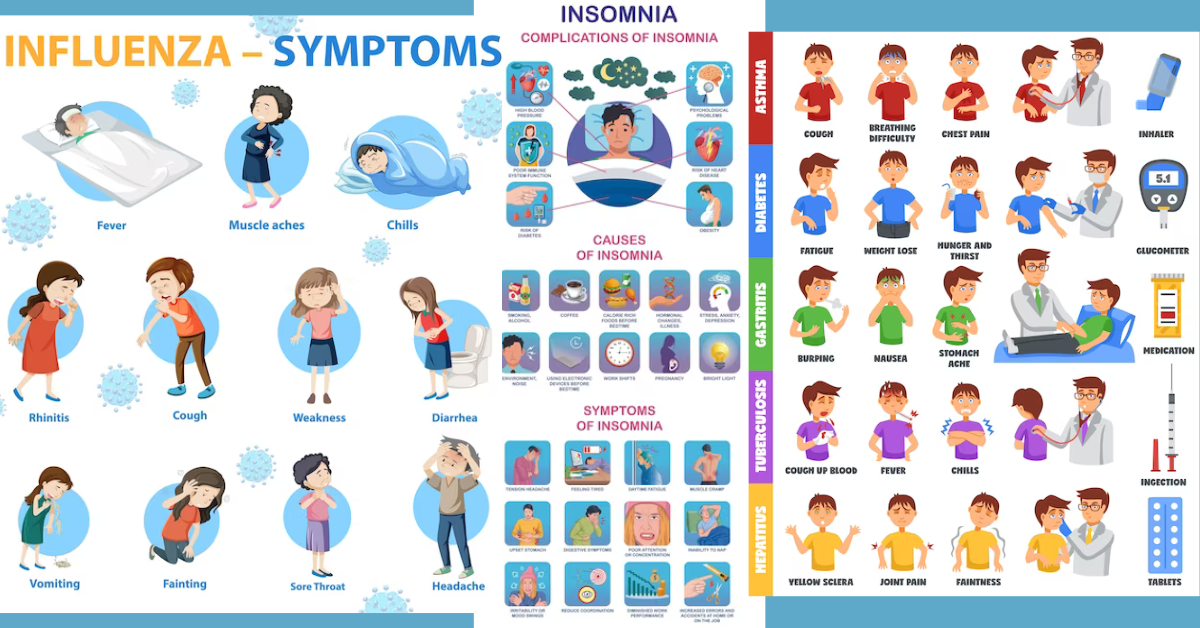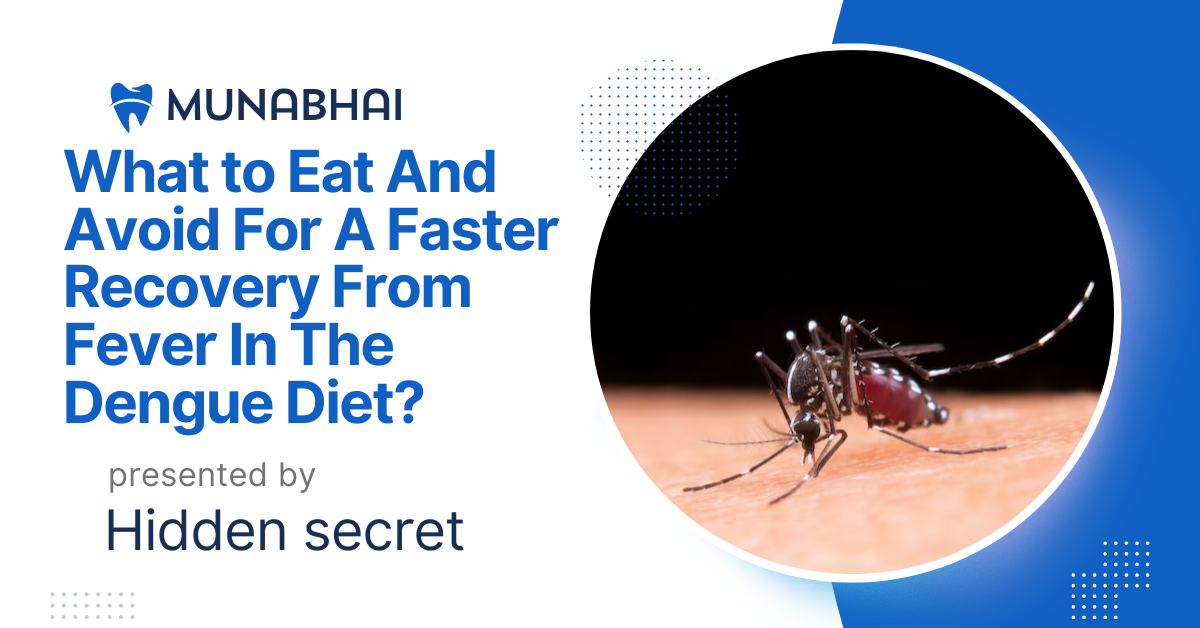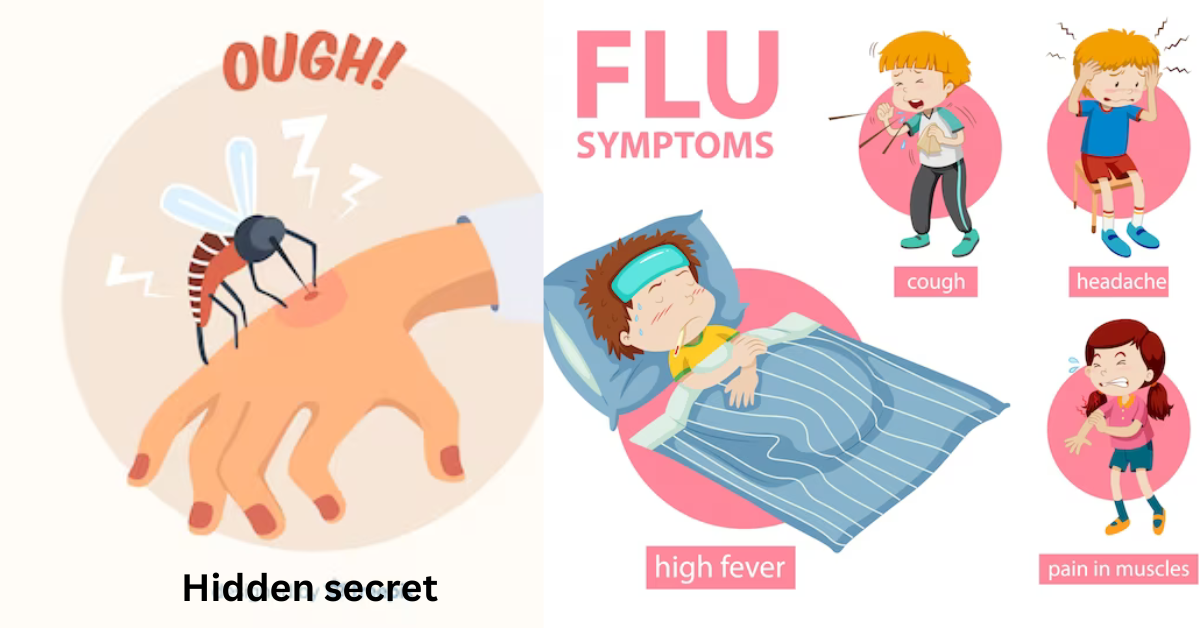Dengue Fever:Symptoms, Causes Management and Treatment
Understanding, preventing, and treating dengue fever: The Dengue Guide
The virus that causes dengue fever is spread through the bite of infected female Aedes mosquitoes, usually Aedes aegypti. With over 390 million infections reported each year, it is a serious worldwide health hazard, according to the World Health Organization (WHO). Dengue fever can range in severity from moderate to severe, and in the latter cases it can be fatal. We'll examine every facet of dengue in this in-depth guide, from its Dengue Fever, Symptoms, Causes Management and Treatment
Recognizing Dengue
What Factors Cause Dengue?
The Flaviviridae family member Dengue virus is what causes dengue fever. The dengue virus has four different serotypes: DEN-1, DEN-2, DEN-3, and DEN-4. Typically, infection with one serotype results in transient immunity to the other serotypes but lifetime immunity to that particular serotype. A person is more likely to develop severe Dengue, commonly known as Dengue hemorrhagic fever or Dengue shock syndrome, if they contract a different serotype in the future.
Read More : Physical Education's Important Part in Whole Child Development
Symptoms and Signs
The symptoms of dengue fever frequently appear suddenly and might range in severity. Typical signs include:
1. High fever: A sudden, high temperature that can frequently reach 104°F (40°C).
2. Severe Headache: This pain is typically felt behind the eyes.
3. Joint and muscular pain : which has earned Dengue the moniker "breakbone fever."
4. Rash: This rash frequently develops two to five days after the fever begins.
5. Minor Bleeding: This includes nosebleeds, gum bleeding, and light bruises.
6. Mild to severe exhaustion: This condition might last for weeks.
Dengue hemorrhagic fever, which is marked by significant bleeding, organ damage, and shock, can develop in severe cases of the disease. This is a medical emergency that needs to be attended to right away.
Precaution
Because there is no specific antiviral medication for Dengue, prevention is essential. Here are some steps you can do to prevent this:
1. Mosquito management : By routinely emptying water collection and storage containers, you can get rid of mosquito breeding grounds. Use screens and mosquito netting on your windows and doors.
2. Protective attire: The best times to wear long sleeves and long pants are at dawn and evening, when Aedes mosquitoes are most active.
3. Use insect repellents like DEET : picaridin, or oil of lemon eucalyptus to ward off mosquitoes.
4. Opt for screened-in or air-conditioned lodging: If you live in a Dengue-prone location, pick accommodations that offer these amenities.
5. Support : neighborhood-based mosquito control initiatives to lower mosquito populations.
Therapy
Dengue fever has no specific antiviral treatment. The major goals of management are symptom relief and supportive care. Here are some actions to take into account:
1. Hydration: To avoid dehydration, consume plenty of fluids, particularly oral rehydration solutions.
2. Painkillers: Painkillers sold over-the-counter : such as acetaminophen (paracetamol), can lower fever and ease discomfort. Ibuprofen and other NSAIDs should be avoided since they can increase the risk of bleeding.
3. Get enough of sleep : to aid in your body's recovery.
4. Health Care: Get medical attention if you think you may have dengue. Hospitalization may be required in serious situations.
Read More : Contact Lens Care: Protecting Your Eyes
Dengue vaccine
The dengue vaccine (Dengvaxia™) is recommended only if you’ve already had dengue before. It can reduce your risk of severe dengue (dengue hemorrhagic fever) if you get a different version of the dengue virus in the future.
Getting the vaccine isn’t recommended if you’ve never had dengue before. Because getting infected once with dengue makes you more likely to get sicker if you get another version of the virus (antibody-dependent enhancement), getting vaccinated before having dengue for the first time can increase your risk of severe dengue. Your healthcare provider will do a blood test to check for signs of a previous dengue infection to confirm that you’ve had dengue before getting the vaccine.
Vaccination isn’t available to everyone. For instance, travelers from the U.S. aren’t yet eligible. Check with your healthcare provider to understand whether you’re eligible for dengue vaccination.
What to Eat And Avoid For A Faster Recovery From Fever In The Dengue Diet?
There appears to be a dengue outbreak in a number of Indian cities. At the moment, Uttarakhand is seeing an increase in instances, with Dehradun suffering the most.
Kolkata-related fatalities have also been reported. The increase is attributed to the persistent rain and waterlogging, which breed more mosquitoes and waterborne illnesses. In such circumstances, it is crucial to keep our guard up and boost our immunity.
Every health issue can be solved by exercising, eating a balanced diet, and living a healthy lifestyle. In relation to diet, the conundrum is what to eat and what not to consume. Here is a brief overview of the dengue diet for your convenience:
DENGUE FEVER: WHAT TO EAT AND AVOID
Increase Fluid Intake: Consuming fluids is essential to keep the body hydrated, maintain a balance of electrolytes in the system, and also flush out the toxins quicker. Here is what all cna we drink:
- Soups
- Herbal Tea
- Coconut Water
- Warm Milk
- Water
Fruitbowl: Fruits are one of the most important foods to add to the diet. They keep the body hydrated, protect from inflammation and are good for gut health too. Loaded with vitamins and minerals, a fruit bowl is a healthy way to start the day.
- Cherries
- Papaya
- Apples
- Plum
- Pomegranate
- Berries
Veggies: Vegetables are highly rich in vitamins, minerals, zinc, iron, magnesium and all other nutrients required by the body to build a strong immunity system. Leafy and coloured veggies are often the most healthy options to choose, albeit that might not be too favourable on the taste.
- Spinach
- Brocolli
- Carrot
- Cabbage
Spices: Spices and condiments are just little ingredients that sit right on our kitchen shelves but serve multiple health benefits. These, especially, contain anti-bacterial, anti-inflammatory properties that help to boost immunity.
- Turmeric
- Garlic
- Ginger
- Fenugreek
- Pepper
- Cinnamon
- Cardamom
Foods to avoid:
- One should avoid sugary and carbonated drinks.
- Spicy food can be heavy on the stomach and people with dengue fever should focus on eating rather simple food
- Avoid deep fried, junk food.
- Foods like pizza, pasta, cakes- basically that include maids should also be avoided.
- a healthy diet can really help with immunity and further help to recover faster after being infected with dengue fever.
Read More : Monsoon delights: 9 delectable corn recipes to savour and celebrate rainy days
What are the dengue fever's 4 stages?
Although not everyone who has dengue will experience all four stages, and the severity can vary, dengue fever normally goes through these four stages. These are the stages:
Stage 1 of the febrile phase is:
The first stage of dengue fever is marked by an abrupt onset of a high temperature that frequently reaches 104°F (40°C). Patients may also experience moderate bleeding, such as nosebleeds or gum bleeding, a strong headache, pain behind the eyes, joint and muscle pain (earning it the moniker "breakbone fever"), rash, and other symptoms. For two to seven days, this stage may last.
Stage 2 (Critical or Severe Stage) Some people get dengue fever :
also known as dengue hemorrhagic fever (DHF) or dengue shock syndrome (DSS), which is a more serious condition. Severe abdominal discomfort, prolonged vomiting, bleeding from the nose or gums, and the emergence of tiny red or purple spots on the skin (petechiae) are all symptoms that get worse during this stage. DHF can result in shock (DSS), a condition that can be fatal and has symptoms like a sudden drop in blood pressure, disorientation, and organ failure.
Stage 3 of the convalescent phase is as follows:
The patient will go into the convalescent stage if they pass through the febrile stage without developing severe dengue. The fever starts to break during this phase, and the patient starts to get better. But weakness and exhaustion can linger for a few weeks.
4.Stage 4 The recovery stage :
The patient continues to acquire strength and resume routine activities in this last stage. Recovery might take several weeks, and even after someone has formally healed from the acute sickness, they could still feel weak and exhausted.
Not all cases of dengue fever will advance to the critical or severe stage (Stage 2), which is crucial to keep in mind. Many dengue cases are minor, and victims often fully recover without any problems. However, it is essential to regularly monitor symptoms, seek medical help if they get worse, and get the right therapy to manage the illness, particularly if severe symptoms or problems appear.
How long does dengue cause platelet loss?
It is important to remember that not all instances of dengue fever will progress to the critical or severe stage (Stage 2) of the disease. The majority of dengue illnesses are mild, and patients frequently fully recover without any issues. However, it is crucial to routinely evaluate symptoms, acquire the proper therapy to control the illness, and seek medical help if they worsen. This is especially important if serious symptoms or issues manifest.
A drop in platelet count is a typical sign of dengue fever. When a fever first appears, which occurs during the first febrile stage of the illness, platelet levels normally start to decline. Around the third to seventh day of an illness, when the fever is at its highest, platelet counts typically reach their lowest level.
Not every person with dengue fever will suffer a significant decline in platelet levels, and the extent to which platelet counts decline can differ from person to person. The reduction in platelet count might range from mild in certain circumstances to severe in others.
It's crucial to understand that while a decline in platelet count is a typical aspect of dengue fever, the severity of the illness is not only determined by this factor. Changes in blood coagulation and vascular permeability are two additional complicated variables that contribute to severe dengue, often known as dengue hemorrhagic fever (DHF) or dengue shock syndrome (DSS).
Healthcare professionals frequently undertake routine blood tests to assess platelet levels and other blood parameters during the course of the illness since monitoring platelet counts is a crucial component of treating Dengue fever. Hospitalization and medical intervention may be required in severe cases or those that are at danger of developing to DHF or DSS in order to manage problems and stop further platelet deterioration.
Following your healthcare provider's recommendations and getting the right medical care are essential if you have dengue fever or have been diagnosed with it. This will help you properly monitor and manage your condition.
FAQs
How do I take care of myself if I’ve had dengue?
If you’ve had dengue before, you’re more likely to become seriously ill if you get a different version of the virus in the future. Consider getting vaccinated and taking additional precautions to protect yourself from mosquito bites, especially if you live in a place where dengue is common.
When should I see my healthcare provider?
If you live in or have recently visited an area where dengue is common, contact your healthcare provider if you have any symptoms of dengue. They will give you recommendations on how to take care of yourself and when to seek additional treatment.
When should I go to the ER?
If you have any warning signs of severe dengue, even if your initial symptoms have gotten better, go to the nearest emergency room immediately. Severe dengue can become life-threatening very quickly.
What questions should I ask my doctor?
- Is the dengue vaccine available to me?
- What medicines can I take for my symptoms?
- What symptoms should I go to the ER for?
Summary
Public health is seriously affected by dengue fever, especially in tropical and subtropical areas. It is essential to comprehend the causes, symptoms, and preventative measures in order to lessen its effects. We can stop the spread of dengue and safeguard ourselves and our communities from this potentially dangerous illness by taking the necessary precautions and getting help right away when we need it.
Do your share to remove mosquito breeding grounds and take precautions against mosquito bites because prevention is crucial when it comes to Dengue. Stay safe and informed!
Read More : Sleep Smarter: 6 Activities to Avoid Before Bed for Better Rest and Effective Ways to Address Sleep Apnea








Post a Comment